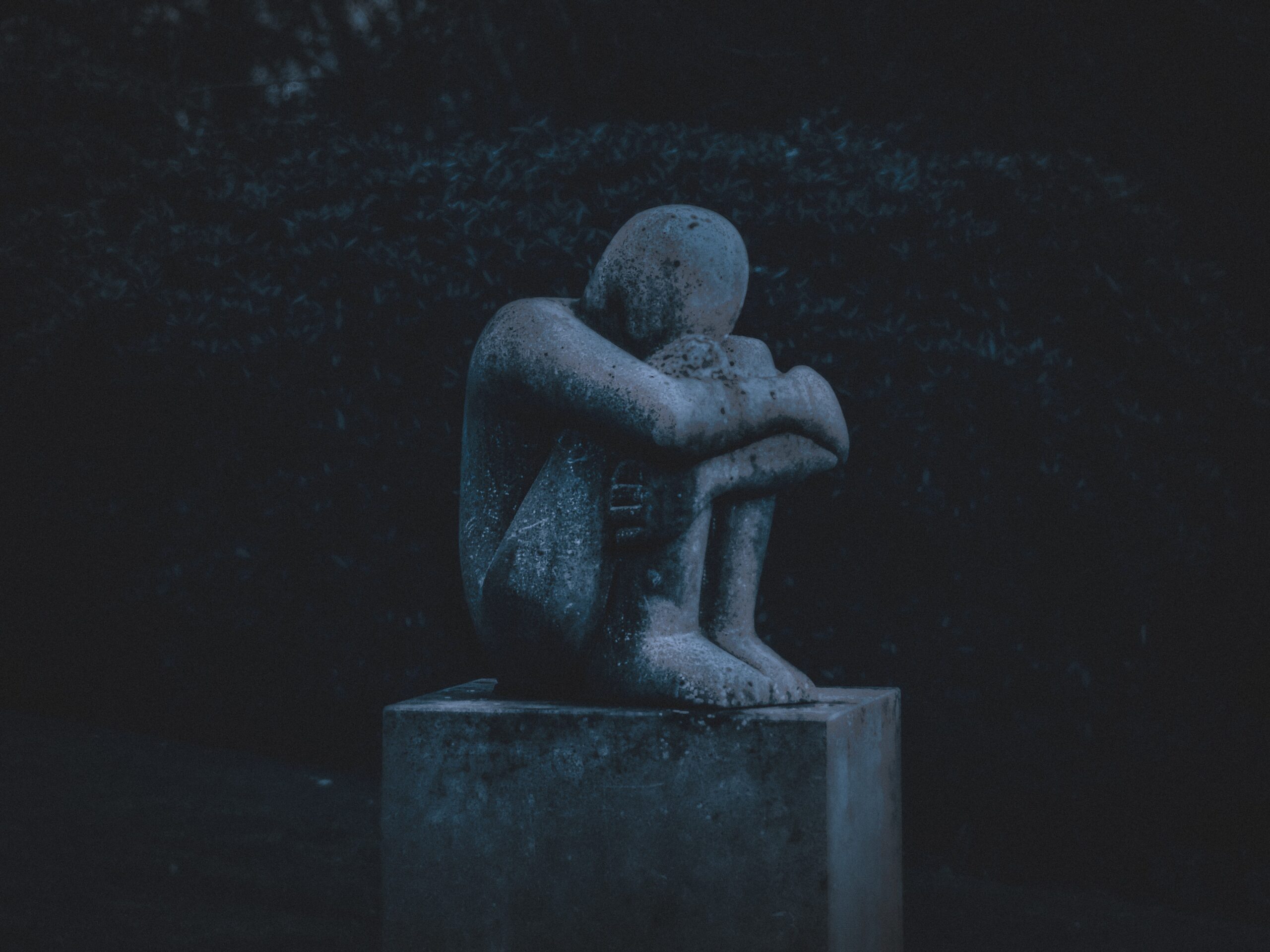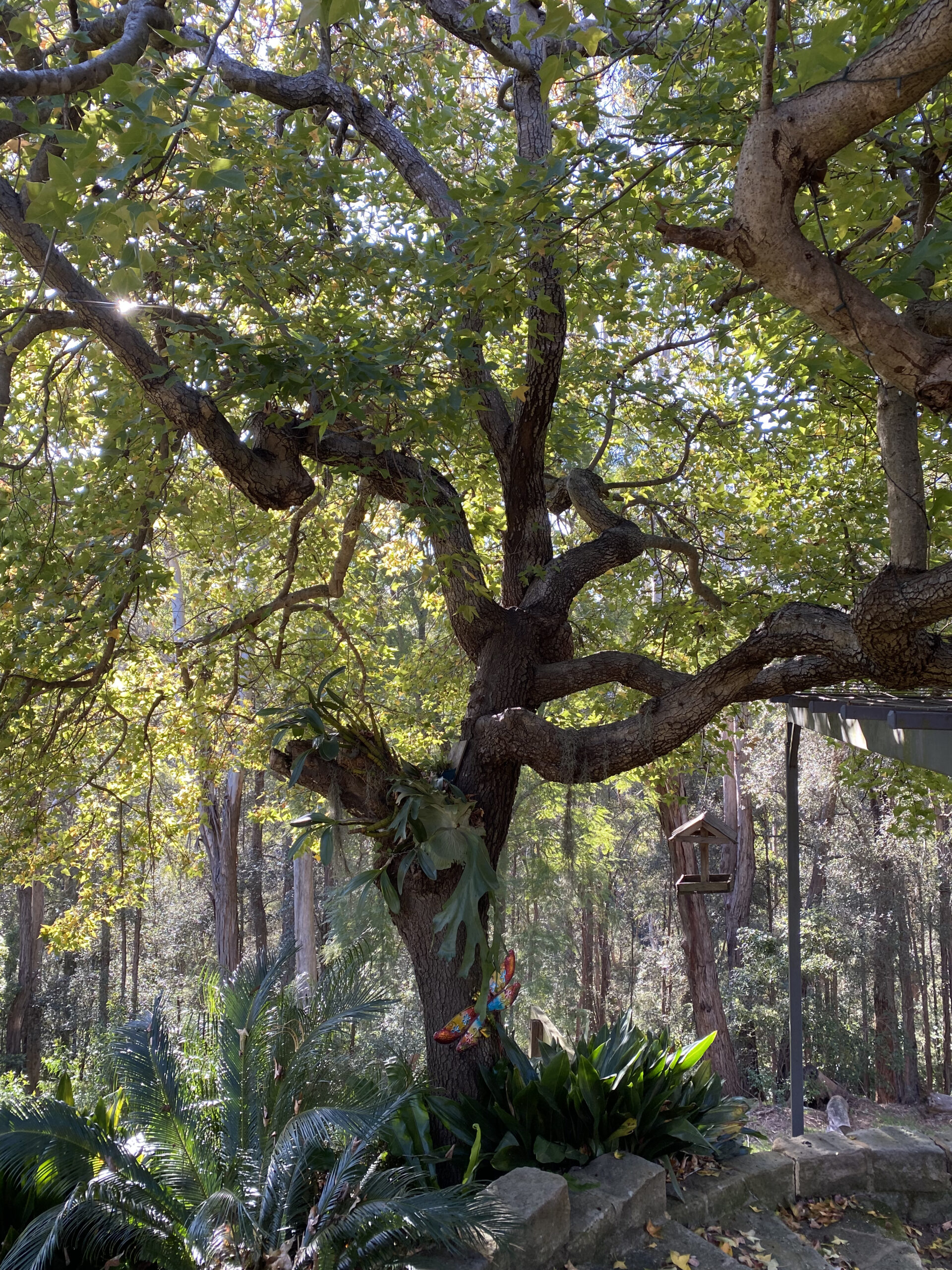“When anxiety was great within me, your consolation brought joy to my soul.” ~Psalm 94:19
I’m a bit wobbly at the moment. I sometimes forget the day of the week, my concentration and focus are fuzzy and I can be irritable, anxious and tired all in the one day! At other times I can be disconnected and numb. This is compounded by guilt, because I perceive I have it better than most. These are all symptoms of grief, loss and wounding. Nothing about COVID-19 is going how we thought it would.
Added to this, television continually screams conflicting information and opinions that fuel anxiety and undermine mental health. In fact, a study by Penn State researchers (Sakya, Van Scoy, Garman, Miller, Snyder, Wasserman, Chinchilli & Lennon, 2021) found that people who obtained health information from TV news during the early days of COVID-19 were the most misinformed. The second least knowledgeable group were those who got their information from Facebook. The conclusion was that misinformation during the early days of the pandemic likely fuelled by it! Too much conflicting information is confusing!
Moreover, many of us are self-soothing with our screens, as they offer entertainment, companionship and stress relief during social isolation. They provide us with, “a sanctuary during lockdown for those seeking familiar and “safe” content [offering us] an escape from the worrying realities of the pandemic” (Ketchell, 2020). In short, we are a stirred-up mess of angst in the midst of all this madness!
 Photo by Mollie Sivaram on Unsplash
Photo by Mollie Sivaram on Unsplash
“Those whose lives are ruled by fear ironically avoid what is necessary to remove it.” ~ Unknown
It is the dead of winter. Even though I hate the jarring cold, every season has its beauty. Huddled inside, I am warmed by the fire and multiple layers of clothing. Today is particularly cold and windy, but the sun is shining through the remaining leaves of my beloved semi-deciduous tree. For over twenty years it has gifted me with shade in summer and beauty in Autumn. It is the first thing I see as I open the blinds each morning. I watch it sleeping through winter while holding restorative space for the ripeness of Spring. It is leaning into liminal space.
“It is a serious thing just to be alive on this fresh morning in this broken world.” ~ Mary Oliver
This notion of liminal space has arrested my attention in lockdown. The Latin word “limen” means “threshold” or literally “a threshold between two other spaces”. Liminality is primarily an inner state, although it can also be an outer state as well (such as COVID-19) that is betwixt and between one space and another. My mother-in-law hovers between life and death, our planned ministry trip may have to be cancelled due to lockdown, my niece’s wedding has been postponed twice and our thanksgiving celebration for our granddaughter must be rescheduled once again. There is no certainty and no closure. Waiting for relief, there is only more of the same. Some have called this kind of liminal space “voluntary displacement”. At present, our nine-week lockdown feels like “involuntary displacement” and akin to exile. We all find ourselves consigned to collective liminal space. It is a familiar, disorienting place for me that I internally fight.
There is always a spiritual invitation in liminal space, so I talk to God about it. I ask Him to help my heart remain open and teachable. I pray that like my tree, this space might be a time of restoration for the coming ripeness of Spring. When I sit with people in pain, I pray over them that they might remain in this place long enough to learn what God has to teach them, but not so long that they fall over into despair. I need to listen to my own wisdom, so I lean into liminality.
Yet, alarmingly, God seems to be asking me to live in a permanent state of liminality. My stomach lurches as a I allow myself to let this in. What makes liminal space so frightening? I suspect it has to do with giving up my need for certainty and control. COVID-19 will likely become my prison if I do not acknowledge my inability to do anything about the major disruptions to my “normal” life.
I am a visionary and a planner. I make things happen. Can I choose to sit through a time of loss and grief? Can I submit to a time of cleansing, surrender and release? Can I still keep my heart open to new possibilities while leaning into liminality? Can I remain here until Jesus leads me out? These are tender questions. Perhaps God is more interested in having intimate conversations with me, rather than giving me a plan. It takes the rawest of courage and unadulterated trust to lean into liminality. I ask for eyes to see it as holy ground and sacred space. I remember how Jesus was led into the wilderness for 40 days of testing, during which he learned to recognise the voice of the enemy, to stand against him and to lean into Father God. Is this why He could say later in Matthew 7:13, “Enter through the narrow gate?” Jesus gave us a first-hand example of how to navigate the wilderness of liminal space.
Transformative Space
I often enter liminal space during transformative moments when my brokenness can no longer be denied. From my observation, the Christian community has not always handled brokenness nor liminal space well. It appears to be a time-worn response, as King David’s family demonstrated thousands of years ago. After Tamar was raped by her half-brother Amnon, Absalom abuses her a second time by his flawed counsel, “Now, my dear sister, let’s keep it quiet – a family matter. He is, after all, your brother. Don’t take this so hard.” In other words, “Get over it!” The result of this advice was, “Tamar lived in her brother Absalom’s home, bitter and desolate” (2 Samuel 13:20 MSG). Tamar’s physical and emotional wounds were minimised, ignored and left unhealed. Even though David was a man after God’s heart, his family was broken and he refused to address it.
 Photo by K. Mitch Hodge on Unsplash
Photo by K. Mitch Hodge on Unsplash
Liminal space typically ensues during transformative moments when my heart is cracked and its throbbing can no longer be denied. When Jesus says in John 16:31-33, “Do not let your heart be troubled,” the Greek word is tarasso, meaning disturbed or agitated. When he says, “In this world you will have trouble” (v33), the Greek word is thlipsis, which means pressure. In other words, Jesus says I will face all kinds of trouble and pressure. The Apostle Peter says, “Don’t be surprised at the fiery ordeal that has come on you to test you [or when life gets really difficult], as though something strange were happening to you” (1 Peter 4:12). Yet, if you are like me, I am shocked and surprised when trials like COVID-19 come my way. I can very easily lose heart and plunge into despondency during an interminable lockdown when I have to cancel the things and people that give me life. Jesus says, “…but take heart!” He invites me to exert confident courage in liminal spaces!
From my observation, the Christian community has not always handled brokenness nor liminal space well. It appears to be a time-worn response, as King David’s family demonstrated thousands of years ago. After Tamar was raped by her half-brother Amnon, Absalom abuses her a second time by his flawed counsel, “Now, my dear sister, let’s keep it quiet – a family matter. He is, after all, your brother. Don’t take this so hard.” In other words, “Get over it!” The result of this advice was, “Tamar lived in her brother Absalom’s home, bitter and desolate” (2 Samuel 13:20 MSG). Tamar’s physical and emotional wounds were minimised, ignored and left unhealed. Even though David was a man after God’s heart, his family was broken and he refused to address it.
Not a lot has changed. How often do we hear after a painful loss, “Don’t be sad – your [husband, wife, father, mother, child, dog]is in a better place and their suffering has ended.” In our hearts we know this is true, but my sadness honours the lost one, because I miss them. To mourn the loss means they were important to me. However, there are typically strong messages that decree it is not okay to feel sadness, anger fear or shame.
Often the mental and emotional wounds people carry are treated in the same fruitless way, negating the Gospel that is designed to set people free. In John 21, after Peter’s soul-destroying betrayal, of Jesus, he enters liminal space as a broken man by returning to his previous vocation of fishing. But Jesus does not avoid him, nor allow him to bury his pain. He asks Peter three times if he loves Him. Could it be that in the repetition of the question that Jesus was healing Peter’s hurting heart and calling him to be the man he would eventually become? This is tantamount to profound healing and restoration of Peter’s broken heart after a painful time in liminal space. If we avoid the pain of liminal space we miss the freshness and restoration that comes after the emptying.
The Cost of Avoidance
There is a high cost to avoidance, primarily because avoiding pain and brokenness blunts the desire for God. Deep down we long for His intimate friendship and the unfolding secrets of His kingdom within us. The Holy Spirit longs to walk with us, to speak to our hearts and to heal us. What keeps us from hearing His voice and trusting Him to heal our emotional wounds that are felt most keenly during times of liminal spaces? What gets in the way?
We are all skilled not reflecting on our lives. Henri Nouwen (as cited by Hernandez, 2006, pp. 59-60) observes:
Just living a life is not enough. We must know what we are living. A life that is not reflected upon isn’t worth living. It belongs to the essence of being human that we contemplate our life, think about it, discuss it, evaluate it, and form opinions about it. Half of living is reflecting on what is being lived. Reflection is essential for growth, development, and change. [underlining mine]
We bury our desire for love and connection when we minimise or avoid pain and suffering. Desire is easily deadened with distractions and addictions (like screen time). Focusing on safer things is preferred to looking at the ache within. If we do not recognise and reflect on our brokenness, if we do not embrace liminality, it will be nearly impossible to uncover the enemy’s lies embedded within the pain, as feelings are the conduit to the lies we are living. Distractions and addictions are an easy substitute in modern society; for instance, we can distract through technology, work, shopping, pornography, ideas, relationships, et cetera, as safe hiding places to retreat from pain. But the cost is enslavement, lack of energy and lack of freedom.
 Photo by Marc-Olivier Jodoin on Unsplash
Photo by Marc-Olivier Jodoin on Unsplash
“Remaining in this moment, we feel our feelings, which always reach out to us through anxiety.
Anxiety, strangely enough, invites us to dive inside to the places from which we always run, the places we are afraid to descend into and explore.” ~ Frederickson, The Lies We Tell Ourselves
On some level I like my distractions, as they work to keep me safe. I love how Jason Hague (2018, p. 51) in Aching Joy, calls distraction “the forgetting place.” Gerald May (2007, p. 13) adds:
Psychologically, addiction uses up desire. It is like a physic malignancy, sucking our life energy into specific obsessions and compulsions, leaving less and less energy available for other people and other pursuits. Spiritually, addiction is a deep-seated form of idolatry. The objects of our addictions become our false gods. These are what we worship, what we attend to, where we give our time and energy, instead of love. Addiction, then, displaces and supplants God’s love as the source and object of our deepest true desire. It is…a counterfeit
My husband, Barry knows this well, as he lets us in to his story:
I embraced my family work ethic, too strongly. I used work to distract from the pain of my internal longings. The steady rhythm of completing a task soothed the disappointment in an incident or a conversation and eventually allowed me tuck the pain away with the other remnants. I could not have told you what was happening in my inner world because my work and functionally nurturing environment kept me safe from the nagging existential questions of worth and acceptance.
I followed the pattern of my parent, as they probably did theirs. Somehow the message was clear, to mess with the empty feelings within would be to experience being emotionally out of control. The ability to know another deeply was blocked by rationally evaluating their behaviour or ability to function. I felt the need to be known and accepted beyond the barrier of my performance, but it was unmet. I was not truly known and as I matured I did not know others. Consequently, that is how I saw all relationships. When I felt something, I blamed the need. As an adult the only way to survive was to banish the need along with the painful feelings of it being unmet.
However, I paid a high price for avoidance. I settled for less than what I was created for; I lived in a bland band of “controlled” emotionality where I did not feel much pain, sorrow or anger, but neither did I experience joy, exuberance, excitement, nor a feeling of adventure and possibilities. I would never be seen and known for who I am and never know desire for another. My “addiction uses up desire”. Living in denial is “safe” but it does not produce abundant life. Facing pain is difficult, but denial meant that I would never experience being “fully alive”.
I was in my fifties when my son asked, “Dad what have you done with your pain”? My life changed.
As a result of his commitment to avoidance, Barry became a stranger to himself. Consequently, he was also estranged from others, including me. “Only when one is connected to one’s own core is one connected to others…” (Lindbergh (1991, p. 44).
Tyranny of the Inmost Being
In the Scriptures, the word for “inmost being” is “koilia” meaning “the innermost part of a man, the soul, heart as the seat of thought, feeling, choice” (Thayer, 2011). Imagine for a moment that you are back in Bible days participating in the feast of tabernacles where Jesus is celebrating. Work is left undone and there is great rejoicing accompanied by music, dancing and loud partying. Usually, Jesus chooses to sit, but today He wants to be heard above the noise, so He stands and cries out in a loud voice, “Let anyone who is thirsty come to me and drink. Whoever believes in me, as Scripture has said, rivers of living water will flow from within them” (John 7:37-38). He is passionate that the party-goers believe in Him. He has come for their hearts. He longs for them to drink of the water of life freely, to drink until they are satisfied, to drink until each soul overflows like a watered garden brimming over with the goodness of the Lord. What would be your response to His appeal?
The basis of Jesus’ appeal is the awareness of deep longings within that ache. Lack of awareness diminishes the potency of the appeal. In Psalm 51:16-17 God insists, “You do not delight in sacrifice, or I would bring it; you do not take pleasure in burnt offerings. My sacrifice, O God, is a broken spirit; a broken and contrite heart you, God, will not despise.” There is something within us that aches, an inner core, our deepest parts that God intends to be searched out, a God-shaped void that only He can fill. The capacity to look within, to allow the truth to deeply pierce us, is not something we tend to readily embrace.
From heartfelt experience, I know that my inmost being has the power to enslave me if it is not filled with Christ. I suspect this is true for you too, evidenced by our emotions; for example, rage, depression, addictions, and so on. Barry’s unsatisfied longings controlled him without his awareness, shown by the continual conflict between his natural desires and the Spirit of God. Neglecting or suppressing his deep longings, he attempted to distract using work as his primary distraction. Sadly, he became detached, disengaged and cold, not knowing the profound touch of God on his life. It hurts to engage with our longings, to enter into liminal space, because we feel vulnerable, little and dependent. Perhaps this is because our deepest parts have not been touched by love, but by pain that hurts to feel.
Thirst
Closely aligned with our inmost being in the Scriptures, is the concept of thirst. Psalm 42:1 reflects, “As the deer pants for streams of water, so my soul pants for you, my God.” The Message translation explains “pants” as, “I’m thirsty for God-alive.” Thirst is associated with a long drought. The poor, thirsty gazelle “longs for the streams” (Biblehub.com, 2015). The same idea is expressed in Psalm 119:20, “My soul is consumed with longing…”
I love deserts, the wildness of them. Imagine for a moment being lost in the searing desert heat with no water. Suddenly, you see rippling water on the horizon and run towards it only to discover it is a mirage. Awareness of your aching thirst motivates you to keep searching for water or you will die. In fact, you are consumed with finding life-giving water above all other desires. The invitation to quench our thirst is offered to those who know how sorely thirsty they are. God pleads to these people, “Come, all of you who thirst, come to the waters; and you without money, come, buy, and eat! Come, buy wine and milk, without money and without cost!” (Isaiah 55:1).
“Wilderness” is a place, in biblical rhetoric, where there are no viable life support systems.” ~ Walter Brueggemann
Nevertheless, both Barry and I chased a mirage to satisfy our insistent thirst. Jeremiah 2:13 warns, “My people have committed two sins: They have forsaken me, the spring of living water, and have dug their own cisterns, broken cisterns that cannot hold water.” God’s people are condemned for digging their own wells that inevitably turn out to be empty, instead of going to the source of living water. Both Barry and I sought after fullness by chasing after empty wells that held no water. Barry pursued the recognition of achievements and being able to come through for his clients. I pursued relationships, requiring that my husband and children come through for me and fill my emptiness. Both of us refused to trust God to provide for us as we worshiped Him and served others.
The result of our commitment to self-protection was what we avoided, the loss of God’s felt presence and the loss of our true selves. Eventually, as both of us approached midlife, the recognition of our emptiness provoked painful rumination. Determined to be full had pushed us in directions where we felt empty. Conceivably, God allowed us to fill ourselves up by our own resources, so that we experienced a reality of darkness where what previously brought temporary satisfaction no longer did. We experienced neither relationship nor impact at core of our being. God is robbed of glory when we fail to come to Him for life. Eventually, external situations (such as teenage children) forced us into inner reflection and liminal space.
Spiritual Bypassing
 Photo by Christopher Beddies on Unsplash
Photo by Christopher Beddies on Unsplash
“What spiritual bypassing would have us rise above is precisely what we need to enter, and enter deeply, with as little self-numbing as possible. To this end, it is crucial that we see through whatever practices we have, spiritual or otherwise, that tranquilize rather than illuminate and awaken us.” ~ Spiritual Bypassing: When Spirituality Disconnects Us from What Really Matters
Spiritual bypassing was also a way we avoided liminal space, defined as being so focused on spiritual practices and beliefs that painful feelings, unhealed wounds, or unpleasant issues are concealed (Welwood, 2000). For us it served the purpose of escaping our suffering by allowing us to bypass the difficult work of healing old wounds and rifts in our relationships. It was basically avoidance couched in the perceived superiority of spirituality. Sadly, most of those who spiritually bypass believe they have reached a level of spiritual development that is superior to their actual level. We fell into this trap and were obnoxious crusaders for our cause.
In our early years, spiritual bypass protected both Barry and I, as it allowed us to avoid painful realities in our childhoods that fed into our relational difficulties. We tried to anesthetise our pain through ministry, but as is always the case, it led to even more pain. For Barry, work assuaged his fear of scarcity, providing financial security and independence. Self-protection from uncomfortable feelings was fed by an intellectual focus on logic and facts. Emotional dissociation became his chosen strategy to avoid the pain of liminal space. For me, chaotic feelings and painful lack of self-worth were controlled through spending and travel, my chosen avoidance strategies. However, both of our unconscious, pain-avoidance strategies only stifled our growth. Lying to ourselves only brought temporary relief. It was like trying to hold a beach ball under water – our energy was spent on attempting to sidestep discomfort. It was exhausting! What we avoided was what we needed most – a deeper connection to our inner selves. We needed to enter liminal space in order to find ourselves and each other.
“I wish we could live the rest of our lives on these rocks,’ I said. ‘Why isn’t it possible to just live at the edge of both, the ocean and the land?'” ~
Closing Thoughts…
While liminal space is full of possibility, potential and renewal, it also often feels uncomfortable and disorienting when we do not know what is beyond the threshold. Spiritual bypassing serves us in avoiding uncertainty, but we become like the blind man who saw men as trees (Mark 8: 22-25), seeing, but not seeing. Blindness blunts our capacity for self-awareness and eventually we end up forfeiting what we most desire. “Whoever finds their life will lose it, and whoever loses their life for my sake will find it” (Matthew 10:39). Our spiritually ought to move us toward engagement with the real world, real people and the painful realities within. Only then will healing our heart wounds empower our spiritual practices and beliefs.
The winter sky has turned overcast and rain threatens. My tree stands dormant in all its splendour, content to wait for the silent key to transformation. The restlessness in my heart stills. Instead of aching for the ripeness of Spring, I surrender the winter of my discontent and choose to embrace liminal space. I know my mother-in-law will soon enter heaven where there will be no more tears nor suffering. COVID-19 will eventually clear and we will be allowed out once again. We will take holidays, minister and enjoy social connections once more. Meanwhile, God and I will pause on the threshold and talk in the uncertainty of liminal space.
Already I hear Jesus saying to me, “Take heart.” This is not about trying to change how I feel. I know from experience this is nigh impossible! Rather, I hear the invitation to rest in the only place deep rest can be found. Jesus’ invitation is to “Come home to me.” This is only possible because, “I have overcome [I have conquered] the world.” Much like the pilgrims on the Emmaus Road, I sometimes fail to recognise Jesus because I am so overwhelmed with my circumstances and need to hold onto certainty, rather than running to the One who is in absolute control of every circumstance, even ones that appear to me to be out of control. It seems that COVID-19 presents me with a fork in the road: I can take the path of being overcome with despondency (I lose heart) or I can take the path of a courageous overcomer (I take heart). I choose to take heart, knowing I am held.
A Declaration…
I declare that I will cease avoiding deep matters of the heart and embrace the uncertainty of liminal space. I resist the lies that tell me it is not worth the pain. I declare that in Jesus I am a courageous overcomer. I take heart.
A Prayer…
“Are you tired? Worn out? Burned out on religion? Come to me. Get away with me and you’ll recover your life. I’ll show you how to take a real rest. Walk with me and work with me—watch how I do it. Learn the unforced rhythms of grace. I won’t lay anything heavy or ill-fitting on you. Keep company with me and you’ll learn to live freely and lightly.” ~Jesus (Matthew 11:28-30)
Jesus, I come home to You…
Reflect…
What is overwhelming for me at present?
What am I afraid to feel?
How might this connect to experiences, memories or stories from my past?
How can I choose to enter into liminal space by turning towards what I avoid in small steps?
Where is God in this?
What does “take heart” mean for me?
About the author: Dr. Paula Davis is a clinical counsellor, supervisor and educator specialising in psychological trauma. She has worked in higher education over many years as senior lecturer in counselling. Along with her husband she designs and delivers marriage enrichment/education programs in Australia, Africa, Sri Lanka, India and Europe.
References
Biblehub.com. (2015). Psalm 42:1 [online]. Retrieved from https://biblehub.com/psalms/42-1.htm
Hague, J. (2018). Aching joy: Following God through the land of unanswered prayer. USA: Navpress.
Ketchell, M. (2020). How coronavirus might have changed TV viewing habits for good – new research. The Conversation.Retrieved from https://theconversation.com/how-coronavirus-might-have-changed-tv-viewing-habits-for-good-new-research-146040
Lindbergh, A. M. (1991). Gift from the sea: 50th-anniversary Edition. New York: Pantheon.
May, G. G. (2007). Addiction and grace: Love and spirituality in the healing of addictions. USA: HarperOne.
Sakya, S. M., Van Scoy, L. J., Garman, J. C., Miller, E. L., Snyder, B., Wasserman, E., Chinchilli, V. M., & Lennon, R. P. (2021). The impact of COVID-19-related changes in media consumption on public knowledge: results of a cross-sectional survey of Pennsylvania adults. Current Medical Research and Opinion, 37(6), 911-915. DOI: 10.1080/03007995.2021.1901679
Thayer, J. H. (2011). Thayer’s Greek lexicon. Electronic Database. Biblesoft, Inc. Retrieved from https://biblehub.com/greek/2836.htm
Welwood, J. (2000). Perfect love, imperfect relationships: Healing the wound of the heart. Boston: Shambhala.





0 Comments